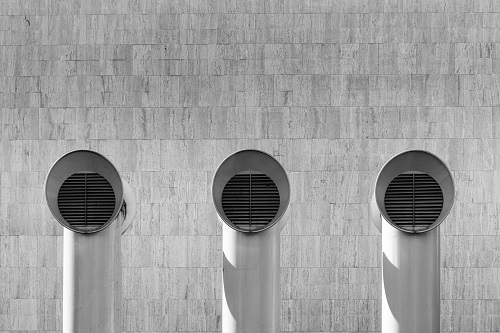Most of us never think about the heating, ventilation, and cooling (HVAC) systems in our home or office. We simply adjust the thermostat to a pleasant temperature in every season. Let’s see HVAC awareness for all seasons.
With weather.com forecasting a summer heatwave for much of the nation now is the time to have your HVAC system inspected. Preventive maintenance keeps your air conditioning from breaking down during the sweltering summer heat.
Best Time for Home HVAC Maintenance
A professional should check your HVAC system once a year. The best time to do maintenance is before you need it. This allows you to schedule a call when it is convenient and maintenance professionals are less busy with emergencies. So have your air conditioner checked in the spring, and check your heating system in the fall.
Benefits of Regular HVAC Maintenance
Avoiding a breakdown is the most obvious reason to do routine maintenance on an HVAC system. But maintenance also extends the life of the unit and increases its efficiency. Here are five benefits of conducting annual HVAC maintenance.
- Save money: The HVAC techs calibrate your thermostat controls to make sure they are working properly. Even a two-degree difference in the setting can change your utility bill. When air filters are clean and all elements function properly, the HVAC system won’t have to work harder to cool your home.
- Avoid repairs: regular inspections result in fewer repairs. Technicians can spot a problem and correct it before it balloons into a major issue.
- Extend unit’s lifespan: a home air conditioner lasts 10 – 15 years. Regular maintenance and repairs make it last even longer. Replacing worn-out parts extends the lifespan of the entire unit. For example, a dirty fan makes the unit work harder, causing extra wear on the motor. Preserving your unit saves a lot of money. The cost of a replacement HVAC system averages between $4,820 and $9,350, according to homeguide.com.
- Breathe better air: over time, airborne irritants like dust, pollen and pet dander accumulate in ductwork. Clogged air filters can’t trap harmful particulates in the air. For anyone with asthma, allergies or chronic respiratory problems, regular maintenance is essential to maintain air quality. Use a full-service company like SERVPRO to inspect the HVAC system, perform maintenance and if needed, clean the air ducts.
- Prevent breakdowns: for the average person, a midsummer air conditioner failure is uncomfortable and inconvenient. But for people with health issues, intense heat and humidity can be dangerous. Conversely, in cold climates, a broken ducane furnace can lead to unsafe conditions and frozen pipes. Keeping your HVAC system in good repair protects your family and your home.
HVAC Maintenance in Commercial Properties
A common scene in action movies shows a trapped hero escaping by crawling through air conditioning ducts. These ducts are always clean, shiny and spacious. Professional HVAC techs also come face to face with ductwork while inspecting heating and cooling systems in commercial buildings. Unlike in Hollywood, they encounter tight spaces, dusty areas and the occasional insect infestation.
When it comes to HVAC maintenance in a commercial facility, the stakes are higher. In an office building or manufacturing plant, an inefficient system can impact the bottom line.
A malfunctioning HVAC system is uncomfortable for customers and employees. It could reduce productivity.
In contrast, a well-maintained HVAC system contributes to a healthy workplace. Ventilation systems can help reduce the spread of airborne viruses such as coronavirus. The Environmental Protection Agency recommends upgrading air filters to the highest efficiency possible. Using a high ratio of outdoor air in ventilation reduces the virus concentration in the air.
In some industries, such as pharmaceutical manufacturing, HVAC systems have a direct role in production. Customized systems precisely control temperature, humidity and filtration. In this setting, businesses schedule frequent maintenance. This is necessary to keep the facility compliant with federal regulations.
When Your Home HVAC System is Inspected
Maintenance of your home HVAC system begins with an inspection to identify any problems. To aid the diagnosis, let the technician know the following:
- Repair history
- Recent maintenance
- Higher than average energy bills
- Inadequate heating or cooling
- A recent increase in allergy symptoms
- Unusual sounds or odors
- Inconsistent airflow
- Thermostat malfunctions
Armed with this information, the HVAC technician evaluates your system to determine the next steps. Here is a typical checklist for an HVAC inspection:
- Test the thermostat
- Evaluate the airflow
- Check refrigerant levels
- Inspect air filters
- Look at gas connections and exhaust systems for the furnace
- Check the condensate drain and drip pains
- Assess the blower motor
- See if surge protectors, safety equipment and fail-safes are enabled
- Assess the electrical components, compressor and condenser
- Check the equipment for pest infestations
- Write up findings and recommendations
After the inspection is completed, typical next steps include:
- Repair the HVAC system
- Add recommended accessories
- Replace the system
Is Your HVAC System Ready for Summer?
A well-maintained HVAC system lasts longer and provides healthier indoor air quality. It also operates more efficiently and is less likely to break down. Hopefully, these tips will help you ensure your system doesn’t break down this summer or ever!









